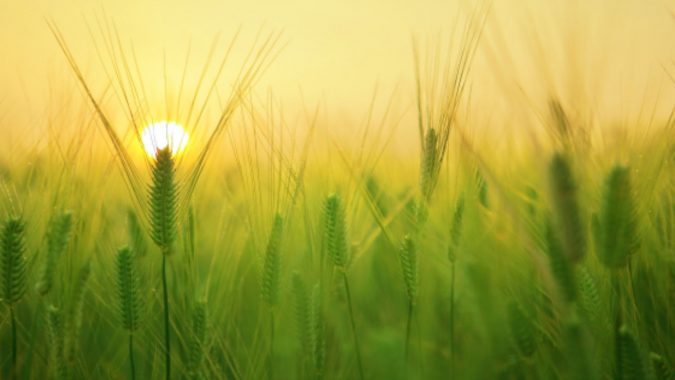
Teachings by Dharma Master Cheng Yen
Translated by Dharma as Water Development Department, Tzu Chi USA
Ah, human beings. For a long period of time, people have done many unwholesome deeds. As a result, our karmic forces have been coming together, forming the accumulated collective karma of sentient beings. Through the advancement of medical technology, we are becoming more and more clear on how viruses affect the human body. Apart from the viruses that already exist in our bodies, to put it simply, “Diseases enter through the mouth.” Human illnesses enter through our mouths.
If we could live in harmony with animals, we would be able to co-exist peacefully with all beings in the world. Yet, due to people’s craving for taste, they eat the meat of all kinds of sentient beings. In the international news, there are all kinds of bizarre stories. There are people who dig up earthworms to eat, and even people who eat ants. Just by opening our mouths, we create karma. This all comes down to one thing: greed.
We humans create karma, and when this karma accumulates, it creates a lurking force that threatens us. Viruses and bacteria become this force; they wait for the right time to infiltrate our bodies, and since they are invisible to the naked eye, we have a hard time protecting ourselves against them. Human life is truly very fragile! With COVID-19 spreading through the air, we truly must heighten our vigilance and show our reverence by adopting a vegetarian diet. When we practice vegetarianism and refrain from eating meat, we find that there are all kinds of plants, grains, and vegetables that can nourish our lives.
As Buddhist practitioners, before every meal, we join our palms together and practice the “five contemplations of eating.”1 The first contemplation is to consider the origin of the food. Thinking about where a bowl of rice comes from, the rice comes from rice crops. The crops come from the rice grains, which have been sown through the hard work of farmers. The farmers transplant the seedlings, irrigate and fertilize the rice field, and pull out the weeds. The seedlings then slowly grow into abundant ears of rice. When the farmers harvest them, they return to being rice grains. The rice grains are dehusked to become white rice, and this white rice is then cooked to become our meal.
When we cook rice, we need heat. In the past, people used firewood to cook, but to get wood, they needed to go into the mountains. People then needed to chop it down and transport it. As they cooked the rice, they used the firewood to heat the pot that the rice was in. Regarding the pot, it is made up of metal, and we damage the earth to dig up the metal ore. The bowl which holds the rice that was cooked in the pot also had to be created by someone; only by mixing clay and water, hand-molding, and firing the clay in a kiln could the bowl be created. All wares, pots, bowls, chopsticks, and so on, must go through layers of manufacturing processes. Every meal we have requires all kinds of causes and conditions to come together; this includes the dining ware we use and the food that they hold. Upon analysis, there are thousands of causes and conditions that must come together for anything to happen. So, we must be very grateful every time we eat, and we should think about how the work of so many farmers and industries had to converge for there to be this bowl of rice!
The human body is a microcosm housing all kinds of bacteria, while the environment we live in is a macrocosm. Our microcosm relies on the macrocosm to live, and in the same way, people also need each other to survive. There has to be you, me, and another person, three people, to form a group. As humans, we are only one type of sentient being, but we have already created countless calamities.
In this world, illnesses are caused by sentient beings’ collective karma; we bring about our own illnesses. The Buddhist sutras state that people have “404 ailments.”² According to modern medical technology and clinical studies, how many kinds of illnesses are there? Just talking about the countless kinds of human illnesses and their origins saddens us; they bring so much suffering.
We are nurtured by all things in the world, but people tend to focus on themselves. Yet, truly, we all depend on each other for survival. Thus, we all must be very grateful.
Compiled from Master Cheng Yen’s teachings at the Global Volunteer Retreat on June 6, 2021
1 “The five contemplations of eating” is also known as “the five observations while eating” and “sramanas’ five contemplations while eating.” The five contem plations are: (1) Contemplate the amount of work it took for the food to be in this state. (2) Contemplate whether one’s virtues are sufficient to accept this offering. (3) Guard the mind from transgression, for which greed is the principle cause. (4) Food that is properly eaten is good medicine that can prevent the body from deteriorating. (5) Food is only taken to accomplish the Path. (Source: Fo Guang Dictionary of Bud dhism)
2 “404 ailments” refers to all illnesses. Chapter 65 of The Treatise on the Great Perfection of Wisdom states, “404 ailments come from the constant encroachment of the four elements in the body. Each one causes 101 ailments. There are 202 types of cold ailments, which are caused by the elements of water and wind. There are 202 types of heat ailments, which are caused by the elements of earth and fire.” (Source: A Dictionary of Chinese Buddhist Terms compiled by Ding Fubao)
































